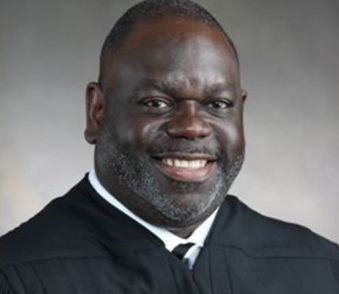A federal judge has struck down a controversial Mississippi bill allowing citizens with “sincerely held religious beliefs” to deny services to gays, lesbian and transgender persons.
U.S. District Judge Carlton W. Reeves issued a 60-page opinion June 30 blocking enforcement of House Bill 1523, titled the “Protecting Freedom of Conscience from Government Discrimination Act,” which was set to go into effect July 1.
The law — sponsored by House Speaker Philip Gunn, a Southern Baptist layman who recently completed service as chair of the Southern Baptist Theological Seminary board of trustees — was intended to protect the right to refuse services based on three religious or moral beliefs: that marriage should be recognized as the union of a man and woman, that sexual relations are reserved for marriage and that the terms male and female refer to an individual’s “immutable biological sex as objectively determined by anatomy and genetics at time of birth.”
The Southern Baptist Convention Ethics and Religious Liberty Commission called the bill “an exemplary model for public policy” following last year’s Supreme Court ruling legalizing same-sex marriage in all 50 states.
In May, 56 conservative Baptist ministers including current and past presidents of the Mississippi Baptist Pastors Conference endorsed the law in an open letter to the Jackson Clarion-Ledger. Moderate and progressive faith leaders — including Mississippi pastors identified with the Cooperative Baptist Fellowship — opposed the measure as unneeded and discriminatory against gays.
The judge appointed by President Obama said the bill violates the constitutional guarantees of religious neutrality and equal protection of the law.
Reeves said HB 1523 violates the First Amendment’s Establishment Clause by giving preference to certain religious beliefs over others.
“If three specific beliefs are protected by this act, it follows that every other religious belief a citizen holds is not protected by the act,” the judge ruled. Mississippians with contrary religious beliefs, he said, “become second-class Christians” and receive the message “that they are outsiders, not full members of the political community, and an accompanying message to adherents that they are insiders, favored members.”
Judge Reeves said the original intent of the 14th Amendment was to require states to provide the same treatment for whites and freed slaves regarding personhood and citizenship rights enumerated in the Civil Rights Act of 1866.
The Supreme Court added sexual orientation to the equal protection canon in 1996, he said, making it “clear that arbitrary discrimination on the basis of sexual orientation violates the Equal Protection Clause.”
“Religious freedom was one of the building blocks of this great nation, and after the nation was torn apart, the guarantee of equal protection under law was used to stitch it back together,” the judge concluded. “But HB 1523 does not honor that tradition of religion freedom, nor does it respect the equal dignity of all of Mississippi’s citizens.”
Previous stories:
Mississippi religious liberty law challenged in court
Pastors urge veto of Mississippi ‘religious liberty’ law
SBC agency backs Mississippi ‘religious freedom’ bill
Mississippi pastors support law widely-described as anti-gay

